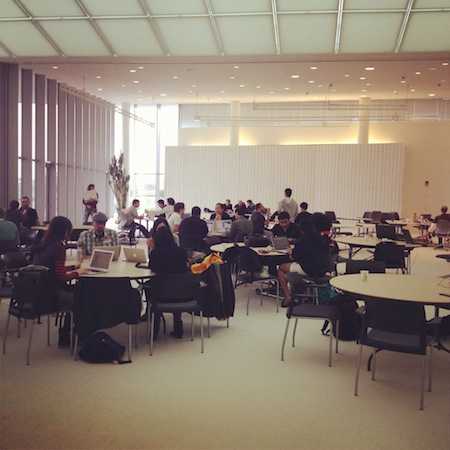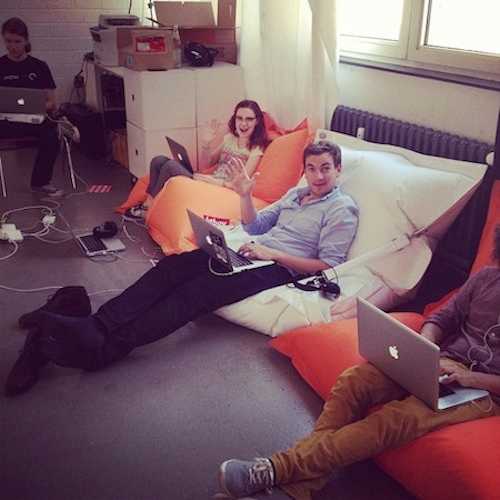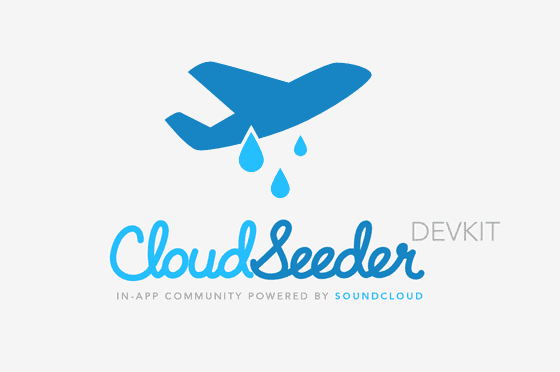Architecture behind our new Search and Explore experience
December 4th, 2012 by Petar DjekicSearch is front-and-center in the new SoundCloud, key to the consumer experience. We’ve made the search box one of the first things you see, and beefed it up with suggestions that allow you to jump directly to people, sounds, groups, and sets of interest. We’ve also added a brand-new Explore section that guides you through the huge and dynamic landscape of sounds on SoundCloud. We’ve also completely overhauled our search infrastructure, which helps us provide more relevant results, scale with…
Coding for GOOD - SoundCloud API
November 2nd, 2012 by Paul OsmanThe web has come a long way. We have APIs that allow developers to create amazing applications quickly, and browser technologies have advanced to the point where JavaScript / HTML and CSS are necessary tools for creating apps. Despite this, there’s still a skills gap and companies are having an increasingly hard time hiring for technical positions.
This is the main reason the folks at GOOD teamed up with the Apollo Group to launch Coding for GOOD. A series of coding lessons and final project…
Story Hack Boston Recap
October 2nd, 2012 by Paul OsmanOn Saturday, we hosted Story Hack Boston along with P2PU and Mashery at the MIT Media Lab. About 50 people from content and technical backgrounds joined us to create new story telling experiences. The crowd was pretty evenly split, which made for a lot of awesome collaboration.
The Next App Gallery Update
September 18th, 2012 by Amir ShaikhWe’re making some changes to how we manage our App Gallery and wanted to take some time to explain them to you, our developer community.
The App Gallery is where we highlight interesting and useful SoundCloud powered apps and services for our users. As our developer community continues to grow, it’s even more important that we keep a high bar for apps found in App Gallery. Having a high standard protects the value of being featured in App Gallery for all of our developers while giving our users…
How to Make a SoundCloud Powered Children's Toy
August 30th, 2012 by paulosmanJust over a week ago we had our first internal hackathon at SoundCloud. You can read (and listen!) about it on our community blog or read some of the awesome press coverage the event received.
We had over 60 people attend and over 20 projects were demoed. I joined a team organized by Josh Devins to build ToyBox, a children’s toy that plays sounds from SoundCloud in response to physical events. The team consisted of myself, Horaci Cuevas, Josh Devins, and Oliver Hookins.
The first task was to come up with a design for our project. An Arduino fitted with gyro, accelerometer and motion sensors provided the interface between real world events and the rest of the system. A Raspberry Pi…
Evolution of SoundCloud’s Architecture
August 30th, 2012 by Sean TreadwayThis is a story of how we adapted our architecture over time to accomodate growth.
Scaling is a luxury problem and surprisingly has more to do with organization than implementation. For each change we addressed the next order of magnitude of users we needed to support, starting in the thousands and now we’re designing for the hundreds of millions. We identify our bottlenecks and addressed them as simply as possible by introducing clear integration points in our infrastructure to divide and…
Shoot yourself in the foot with iptables and kmod auto-loading
August 14th, 2012 by Johannes 'fish' ZiemkefishAs some of you might know, we had an outage yesterday. We believe that in every mistake there is something to learn from, so after each outage we are writing post-mortems. Usually we do this internally because the issues we run into are very specific to our infrastructure.
This time we ran into a quite nasty issue which could affect everyone running a linux system with a lot sessions on it and we thought you might be interested to know about that pitfall.
What happened?
At 4:40pm CEST, we got reports about Yikes (503/504 errors) on SoundCloud. Around the same time, our monitoring alerted for a high amount of 503s at our caching layer and right after that one of our L7 routing nginx instances was…
Introducing the CloudSeeder Devkit
August 13th, 2012 by David ShuToday we’re featuring a guest post from our friends at Retronyms. They’ve built some amazing community features into their app Tabletop using the SoundCloud API and have open sourced their CloudSeeder Devkit. This post was written for us by David Shu. David is a software engineer at the Retronyms and has worked on a number of iOS apps, including Tabletop and Dokobots. He currently resides in San Francisco, CA.
We recently built a SoundCloud-powered community into our app Tabletop, a modular audio environment for the iPad, using the CocoaSoundCloudAPI. The project, CloudSeeder, lets users browse, stream, favorite, and comment on Tabletop tracks without ever leaving the app.
As developers, we discovered tons of talented users in our Tabletop community. At the same time, our users found inspiration from each other and a new showcase for their creations. To share in the excitement of community creation with all developers, today we’re releasing the CloudSeeder Devkit as open source on Google Code.
Go at SoundCloud
July 24th, 2012 by Peter BourgonSoundCloud is a polyglot company, and while we’ve always operated with Ruby on Rails at the top of our stack, we’ve got quite a wide variety of languages represented in our backend. I’d like to describe a bit about how—and why—we use Go, an open-source language that recently hit version 1.
It’s in our company DNA that our engineers are generalists, rather than specialists. We hope that everyone will be at least conversant about every part of our infrastructure. Even more, we encourage engineers…
Recording and Sharing Phone Calls
July 12th, 2012 by Paul OsmanA few weeks ago, I attended News Hack Day in San Francisco. News Hack Days are events that bring together journalists, developers and designers for multi day creative coding and brainstorming sessions.
I really like the idea of hack days that bring together people from different backgrounds. After chatting with a few journalists, it became obvious to me that recording interviews on the phone is a real pain. I saw this as an opportunity to build a fun app that would make this easier for people.


